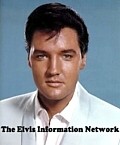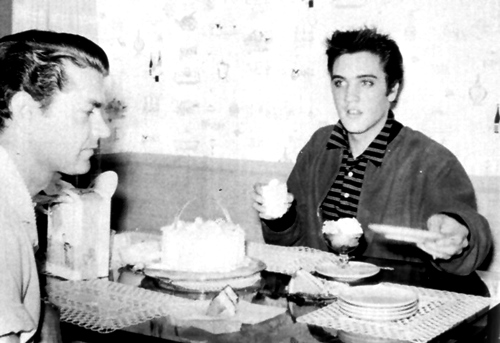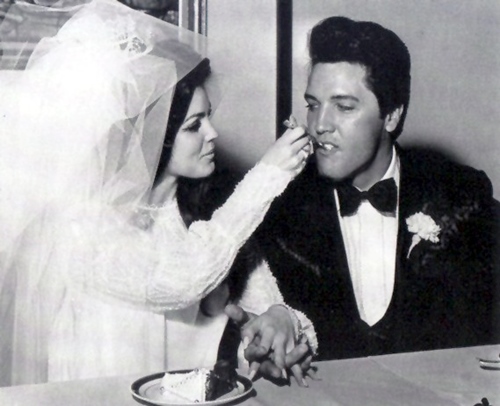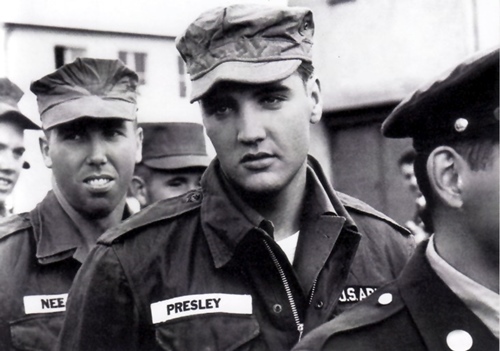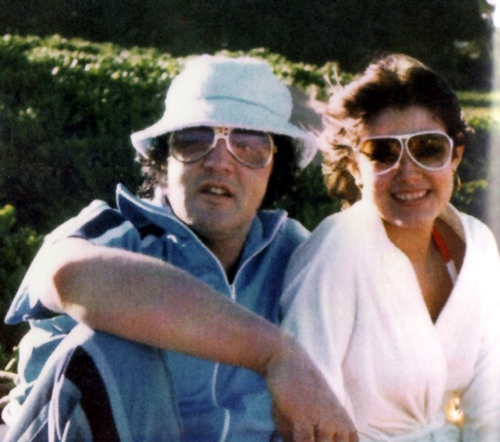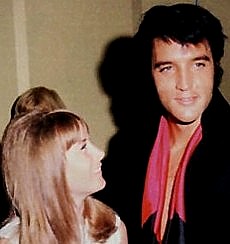Weidenfeld & Nicholson, UK, 2016, Hardcover, 326 pages, Illustrated, ISBN-13: 978-147604550.
"How are people going to remember me when I'm gone?"
"Will they soon forget me?
(Elvis Presley, May 1977)
|
|
|
|
Amazon USA
Hardcover
Pre-order: 31 March 2017
|
Amazon USA
Audio CD
Pre-order: 31 March 2017
|
Amazon UK
Buy now!!!
Softcover
|
Amazon UK
Buy now!!!
Hardcover
|
Prior to publication of Being Elvis, Ray Connolly was best known in Elvis circles for his excellent biographical article (A Rock Odyssey) which, quite strangely, complemented a series of sheet music for 69 Elvis recordings in the popular 1978 book release, Elvis Complete (released as The Compleat Elvis in the US - the US edition including sheet music for an additional six songs). (Connolly also interviewed and met Elvis in Las Vegas in 1969 - see interview below)
Somewhat bizarrely, but nevertheless instructively, the author opens his 2016 biographical examination of the Elvis story by recounting a conversation with Robert Zimmerman, better known as Bob Dylan. It neatly sets a thematic platform.
In the Foreword, Connolly candidly asserts his underlying titular theme:
And, lying lonely and depressed in his suite, temporarily abandoned after his latest girlfriend had become bored with the treadmill of touring, Elvis Presley had sent for his soprano backing singer Kathy Westmoreland to keep him company. He didn't want to be alone, to sleep alone.
Kathy would spend the night listening to Elvis as he talked about his mother, Gladys, his weight, his health and his daughter, Lisa Marie. She would console him as he agonised about the soon to be published book (Elvis What Happened?) by Red West, Sonny West and Dave Hebner. Kathy would also shake her head as Elvis worried that he would be quickly forgotten after his death.
|
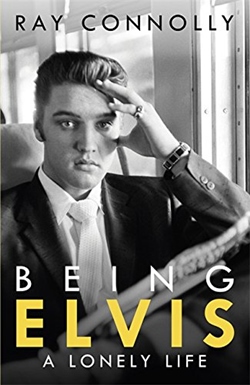 |
Interestingly, the tag A Lonely Life only appears on the dust jacket of the book cover. The title on the book spine and inside pages is simply Being Elvis. After reading Connolly's interesting tome it is my view that a more apt title for what he has written is Being Elvis A Lonely Life and the Search for Meaning. Rather than the singular thematic implied by Being Elvis A Lonely Life, Connolly's book is equally about Elvis' (adult life) search for the meaning of life and by implication, meaning in his life.
Importantly, Connolly searches below the surface to reveal how Elvis' insecurity and loneliness were exacerbated by the oppressive pressures of a fame and adulation previously unheard of.
Elvis’ struggle with loneliness and abandonment is reinforced throughout an often erudite prose:
But was he happy? Not in the way he had been...........He never doubted that his mother would be waiting for him; that he would see her again.
A poet will distil the pain of loss into a few lines, a composer finds a way of describing it in music. Elvis sang about it. After Priscilla left he would be drawn to songs of loss and self-recrimination for the rest of his life.
At other times in the narrative we discover what will be, for many readers, new or a new perspective on parts of the Elvis story:
Then, back home in Memphis, on 8 January 1975, he turned forty. He had always seen himself as the boy who had broken the mould. He was now older than his father had been when ‘Heartbreak Hotel’ had been released. Daddy had retired at thity-nine, and he’d thought of him as a middle aged man. Was that how he was now seen? The newspapers congratulated him with the snide comment that he was ‘fat and forty’.
His language as a boy had been more restrained than that of his friends, and he’d complained to Red before he’d gone into the army that Red’s cousin, Sonny, who now worked for him, kept saying ‘son of a bitch’. Now, as he grew older, he could be as crude as any man, but, in another moment, as a lifelong reader of the Bible, he would pepper his conversations with religious adages like a pastor.
- Bibliography
- Chapter Notes
- Index
- List of Elvis Presley's Best Recordings
- After Elvis Died What Happened To....? (this section could have been longer to include an update on people such as DJ Fontana, Marion Keisker, the Stanley brothers, Linda Thompson, Ginger Alden and Marty Lacker)
- three sections of standard color and b&w visuals (24 pages)
Given it's sub-title: A Lonely Life, I was surprised the author's bibliography did not include two books relevant to the theme, The Inner Elvis A Psychological Biography of Elvis Aaron Presley (Peter Whitmer, Ph.D.) and Psychological Autopsy of Elvis Presley (William J. Ronan). Elvis A Sociological Portrait (Dorothy Arnall Leasman) is a third title that also may have been useful in framing the discussion.
Regardless, the thematic element of the book’s title is eloquently argued by Connolly and cogently reflected by Elvis’ apparent statement shortly before his death:
“I’m so tired of being Elvis Presley”
The author takes from this that death was the only escape available to Elvis, who was the first icon to experience unheard of levels of public adoration, media scrutiny and invasion of privacy at a global level. Instinctively, this is a crucial issue in any serious consideration of "Elvis".
The theme of Elvis being lonely is not new. It has been well discussed in many other biographies, interviews and memoirs, from Kathy Westmoreland and Jerry Schilling to Larry Geller and the Peter Brown/Pat Broeske biography, Down At the End of Lonely Street. In Lonely Streeet the authors concluded that in the end, Elvis self-destructed due to the twin pressures of boredom and loneliness. Similarly, the idea that Elvis knew (or sensed) his life was ending has been suggested by numerous others, such as Elvis' step-brother, David Stanley and his housekeeper, Nancy Rooks.
More recently, Professor Joel Williamson covered not dissimilar themes in his 2014 release, Elvis Presley: A Southern Life by examining the influence of Elvis’ southern upbringing (as does Connolly) and the destructive impact of excesses and insecurity on Elvis and his growing inability to function as a reasonably normal human being.
Verdict: Being Elvis A Lonely Life does not really offer a new perspective on the Elvis story. However, that does not in any way detract from its value. The strength of what Ray Connolly has written is how skillfully he has brought together and expressed his account, engaging the reader through a pleasant and free flowing writing style with a narrative that provokes thought on the part of the reader and invites contemplation of the unique situation that Elvis experienced as the world's first truly global superstar.



